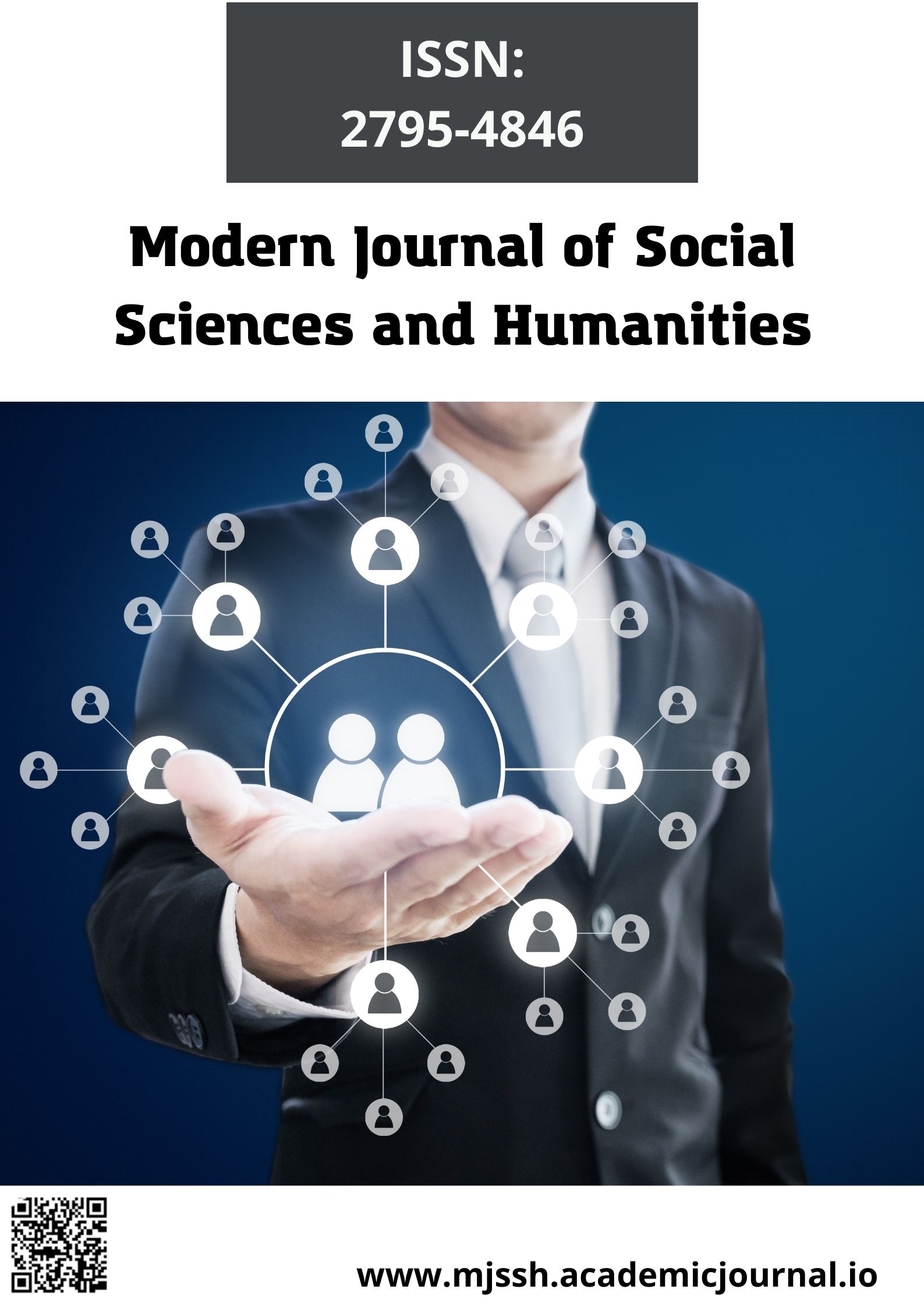GENDER INEQUALITY AND WOMEN’S POLITICAL EMPOWERMENT: A CASE STUDY OF AHOADA WEST LOCAL GOVERNMENT AREA OF RIVERS STATE
DOI:
https://doi.org/10.51699/mjssh.v1i4.136Keywords:
Gender Inequality, Female Political Empowerment and ParticipationAbstract
The marginalization and humiliation of women which was traceable to the pre-colonial period still persists in this contemporary epoch. This immensely has hampered the empowerment of women in politics of Ahoada East Local Government Area. This study investigates gender inequality and female political empowerment in Ahoada East Local Government Area of Rivers State. The study adopts the feminist theory in its interpretation. Quantitative methods of sourcing data were adopted in this study. Thus, the sample size of 399 was determined from the population of all the women in Ahoada East Local Government Area. Simple random and accidental sampling techniques were used to select the 99 women from each of the randomly selected communities. The findings thereof portray that, denial of land inheritance; abuse, widowhood practice, physical attacks and difficulty in labour markets etc. were some of the nature of gender issues faced by the women. There were cultural, economic, educational, male gender preponderance and other factors that influence gender inequality and female political empowerment in the study area. The study recommends amongst others that the National gender policy should be signed to laws to provide a legal framework for gender mainstreaming in the national development plans and strategies as this would lead to the abolishment of discriminatory practices such as denial of land share to women, unequal access to education, and discrimination in decision making etc.
References
Agbaje, O. S., Agu, B. N. & Osakwe, K. C. (2015). Perception of harmful traditional practices among women of childbearing age in Oru West Local Government Area, Imo State. Science Journal of Public Health, 3(2), 150-160.
Agunbiade, D. T. (2010). Women participation and the political procession in Nigeria: Problems and prospects. African Journal of political science and international relations, 4(2), 075-082.
Akudo, C. O. (2012). Empowering Nigerian women in the 21st century; measuring the gap. Munich, GRIN verlag,https://www.grin. com/document/192007
Aminu, D. (2018) Women and political empowerment. The Guardian Newspaper, 23rd September.
Anele, K. (1998). Sexually end the devaluation of women in Nigeria. Lackosin Nigeria Limited, PH, Nigeria.
Anigwe, A. (2014). Perception of women in political leadership positions in Nigeria. Walden dissertation and Doctoral studies collection, Walden University. https://scholarworkwalden.edu/dissertations.
Awofeso, O. & Odeyam, T. T. (2014). Gender and political participation in Nigeria: A cultural perspective. A Journal Research in Peace, Gender and Development, 4(6), 104-119.
Chinasa, H. (2018). The problems of gender inequality in Nigeria. Legit.ng, Thursday, 12 April.
City Population (2021) https://www.citypopulation.de/php/nigeria-admin.php?adm2id=NGA033002.
Directorate of Organization and Mobilization©2020.
Haralambos; M. & Healed, R. (1980). Sociology: Themes and perspectives. University Tutorial Press, London.
Ibekwe, P. M., Udosen, A. & Okoro, C. O. (2014). Social-cultural impact on women education and employment in Emouha Local Government Area of Rivers State, Nigeria. Journal of Emerging Trends in Educational Research and Policy Studies, 5(2), 179-183.
Institutes of Policy Research (IPR) (2016). Potential and challenges for women leaders.
Law-Remer, T. (2012). Gender equality matters for development outcome.
Mckay, A., Moore, S. & Kubik, W. (2018). Western beauty pressures and their impact on young university women. International Journal of Gender and Women’s Studies, 6(2), 1-11.
Menhas, R., Jabeen, N., Akhtar, S. & Yaqoob, M. (2013). Cultural barriers of female empowerment. Afro Asian Journal of Anthropology and Social Policy, 4(1), 1-10.
Mudo, V. I. (1996). Cultural devaluation of indigenous women in Sokoto metropolis: A cog in the wheels of sustainable development. In Y. Ovuari (ed.), Environment. Ventage Publisher Limited, Ibadan, Oyo State.
National Bureau of Statistics (2016). Statistical Report on women and men in Nigeria
Nwosu, H. (1999). Women in Anambra State and the task ahead. Hima and Hima Limited, Benin, Edo State.
Odike, E. L. (2017). Women issues in Africa. Emmanest Ventures, Port Harcourt.
Okafor, E. & Akokuwebe, M. (2015). Women and leadership in Nigeria: Challenges and prospects. Developing Countries Studies, 5(4), 1-11.
Oke, L. (2015). Democracy, women’s political participation and the policy environment in Nigeria
Omokojie, S. (2013). Socio-cultural factors militating against the work performance and advancement of female executives in Nigerian public health institutions. Journal of Humanities and Social Science, 10(4), 10-14.
Oni, S. & Joshua, S. (2012). Gender relations in Nigeria’s democratic governance. Journal of politics & Governance, 1(2/3), 4-5.
Onyema, A. C. (2012). Management of gender issues in public service in Nigeria. Evergreen Publishers, Umuahia.
Ritzer, G. & Goodman, D. (2004). Sociological theory. McGraw-Hill.
Rubio, A. (2018). Factors that impact girls’ education in Ghana: The role of cultural mind-set. Master’s Dissertation in Education and Leadership in Vancouver Island University.
Ugoji, C. U. (2003). Dialect communities and language Vitality: A festschrift for E. No l Emenanjo, Abia State.
Wika, N. J., & Ifeanacho. M. (1998) Women in development: The evidence from Nigeria. Belpot Publisher.
www.peoplesdemocraticparty,com.ng |@officialPDPNig






